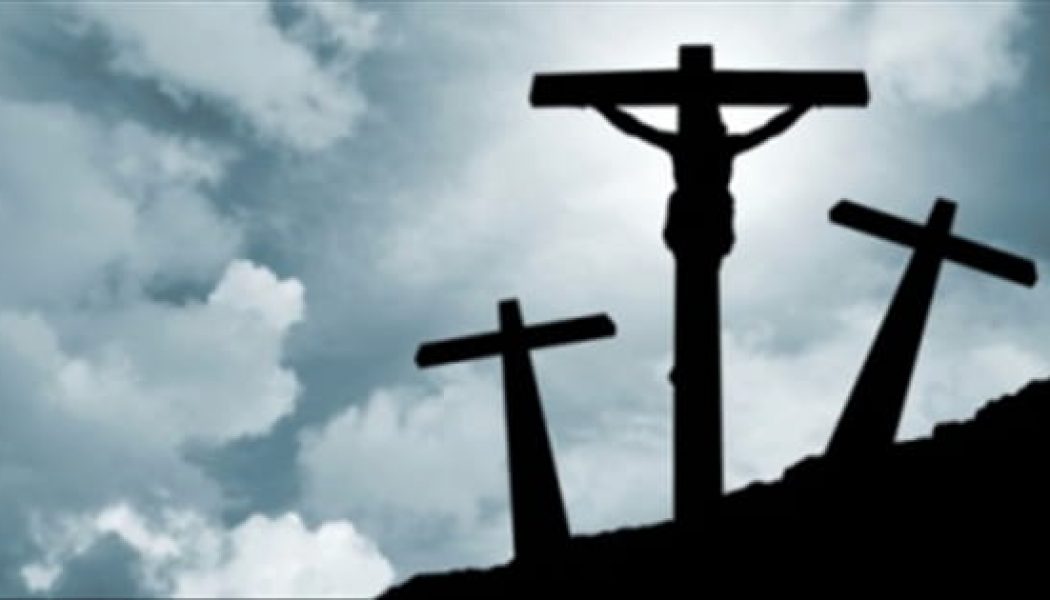Fisher of Men
Beginning with the Beginning
Philosopher Bertrand Russell said, “There is no reason to suppose that the world had a beginning at all.” The poverty of Russell’s thought begins not with the idea that all things must have a beginning but his own failure to see the value of that beginning. The account of God’s creating the world comes first in the biblical record for greater reasons than explaining how the world came into being. The Creation is the opening act of God’s redemptive play. The Creation introduces the reader to the key players in this great drama. It sets the theological stage upon which the rest of history will be played out. Consider the following five key elements of the beginning: 1. In the beginning God is introduced. God, Moses writes, “created the heavens and the earth” (Genesis 1:1 ESV). He is E...
Four Lies That Keep Us from Jesus
Come to me, all who labor and are heavy laden, and I will give you rest. (Matthew 11:28 ESV) Though Jesus invites sinners (like you) to come to him for cleansing, relief, and renewal, I find that many of us are often slow to come to him on account of those very things that should speed us on our way to him. There are many lies we are tempted to believe that can short-circuit our communion with Christ. Here are four to watch out for. This sin isn’t serious enough to take to Jesus Some of you consider your sins, at least some of your sins, as too small to take to Jesus. No one got hurt, your faith is intact, so why both Jesus with it? The problem is the perceived smallness of your sins has created an excuse for you to stay away from the Savior, rather than reminding you of your ...
Defending the Resurrection of Jesus
Of all the teachings of Christianity, no doctrine is more central than the bodily resurrection of Jesus Christ from the dead. The truth of the resurrection has been attacked from every angle. New books and television media regularly appear questioning the truth of the resurrection, re-hashing old theories about what happened to Jesus’ body. Since the resurrection is crucial to Christianity, Christians ought to be able to give answers to the inevitable questions about the truth of the resurrection. Historically Credible Accounts The first step in defending the resurrection from its detractors is to establish the fact of the historical events that took place as conveyed in the Gospels. As philosopher William Lane Craig notes in his book Reasonable Faith, “The issue is whether the g...
What Are You Bragging About? Legalism vs. Grace
I am continually struck by Jesus‘ teaching in Luke 18:9. There are so many angles by which I am instructed, convicted, refreshed, and amazed. Jesus tells us that he told the parable to some who trusted in themselves that they were righteous. In other words, they did not need him. They were good with their own ability to earn and maintain God’s pleasure through their obedience/holiness. At the heart of the parable Jesus shows that in order to really need him you must first really that you don’t need yourself. Our lack of righteousness makes Jesus appealing while our perception of righteousness makes Jesus appear, at best, to be an adornment and at worst, to be an insult. We notice that the guy in Jesus’ cross hairs is bragging on himself in the temple. Can you e...
Did Christianity Have a Golden Age? Nope.
I often ask my students to give me a quick summary of church history. It’s a good way to see what they know, and, more importantly, what they think they know. The results are fascinating. Beyond the unsurprising fact that most know very little about the story of God’s people between the end of the New Testament and the day before yesterday, the stories usually have at least one thing in common: a Golden Age. THE GOLDEN AGE MENTALITY Here’s how the story goes. At some point in history, the church got things right. This could be the early church, the Reformation, the Puritans, or some other group. But, whoever it was, they nailed it. They weren’t perfect, of course. But they got as close as we’re likely to get this side of heaven. And the reason this generation...
Can You Find Peace? Insights from the Book of Romans
We learn from the opening verses of Romans that this letter is all about the gospel of God, which centers in his Son. It is the good news of God’s saving grace in Jesus for sinners like me and you. And that good news is all about God’s peace. Paul closes his introduction with this promise and blessing: “To all in Rome who are loved by God and called to be saints: Grace and peace to you from God our Father and from the Lord Jesus Christ” (Romans 1:7). These words come to us as more than mere formalities. They declare life-giving hope to seize and believe. The apostle announces God’s stance—his posture of grace and peace toward us in Christ. Just as the words “loved” and “saints” point back to the designation of God’s people in the Hebrew Scriptures, so this promise of peace calls to mind th...
Who Was St. James the Greater? What Is the Way of St. James?
Saint James the Greater was one of the twelve apostles of Jesus and the brother of St. John the Evangelist (Mark 1:19-20). James and John, along with the Apostle Peter, were part of Jesus’ “inner circle,” witnessing key events that the other apostles did not witness (Mark 5:35-43; Matthew 17:1-8, 26:36-46). After James was martyred, legend places his remains in Spain, where they are supposedly enshrined in a cathedral known as the Cathedral of Santiago de Compostela. Since the Middle Ages, people have walked from certain starting points across Europe to his tomb along pilgrimage routes that have become known as the Way of St. James. Who was St. James the Greater? James the Greater was the son of Zebedee and Salome and the brother of John the Evangelist. Scripture recounts that after callin...
10 Types of Christian Leadership
Recently I was asked to give a conference address on “Positive Leadership.” It got me thinking about how many different kinds of pastoral leadership I’d come across in my ministry. Mr. Passive never takes a step forwards. Like a snooker ball, he just waits to be hit by the next event. If he can maintain the status quo or manage a congregation’s gradual decline, he’s quite happy. If Mr. Passive is a snooker ball, Mr. Dictator is the snooker cue. He’s always pushing his way around, pushing others out of his way, and aggressively pushing his own agenda with little thought about the knock-on effects for others. Sometimes he pushes so hard that he rips the cloth and ends the game for himself and everyone else too. Mr. Crisis is neither too passive nor too aggressive. He doesn’t...
Is the Doctrine of Justification Biblical?
What is Justification? As defined in the Baker’s Biblical Dictionary, Justification is the declaring of a person to be just or righteous. It is a legal term signifying acquittal, a fact that makes it unpalatable to many in our day. We tend to distrust legalism and thus we dismiss anything that savors of a legalistic approach. We should be clear that our hesitation was not shared by the biblical writers. In their day it was axiomatic that a wealthy and important citizen would not be treated in a law court in the same way as an insignificant person. Indeed this was sometimes written into the statutes and, for example, in the ancient Code of Hammurabi it is laid down that if a citizen knocked out the tooth of another citizen his own tooth should be knocked out. But if the victim was a v...
How Avoidance of Church Discipline Is Like Doctor Shopping
Law enforcement officials use the term “doctor shopping” to refer to the way those addicted to prescription pain medications seek to avert accountability. If you go to your doctor to ask for Vicodin, and your physician refuses to prescribe it, you are doctor shopping if you then seek out multiple doctors until you find the one who will prescribe the Vicodin. Sometimes an addict will have multiple doctors going at once, all prescribing different medicines, often those that are dangerous to mix. I’ve noticed the same thing going on when it comes to church accountability. The truth is, there’s a certain type of personality that doesn’t want accountability, but affirmation. If one wants to divorce someone one shouldn’t divorce or marry someone one shouldn’t marry or do something one shouldn’t ...
How Should You Pray When Wronged?
Vindication is something we all desire, because injustices are committed toward us in this life. On a lesser scale it could be a simple spat between spouses in which the one accuses the other of moving an item, when the other has evidence of things being very different. On a larger scale it could be that family promises were not kept, or lies and cover-ups had the wrong person thrown out of school, found innocent a criminal who harmed your loved one, or cost you an unwarranted demotion at work. In Psalms 26:1, one reads, “Vindicate Me, O Lord.” The word translated as “vindication” has judgment at its core. David is praying, “Judge me, O Lord. Look at the wicked and me, see that I have lived a life of integrity and depended on you without wavering.” David’s prayer reveals three things: 1.&n...
Why Are We Fascinated by Fear?
[Editor’s Note: this excerpt is taken from chapter 5 of Meaning at the Movies: Becoming a Discerning Viewer, by Grant Horner (Crossway Books).] Film, Fear, Pleasure Most people would not describe fear as a pleasant emotion. The experience of terror, of being threatened, doomed, or on the brink of feeling some terrible agony, is quite naturally a negative feeling. The purpose of fear is to serve as a warning. People do not send chocolates or flowers as a warning. A tiger does not purr before he attacks you, nor does your heart beat more slowly right before he eats you. So why is there a massive industry dedicated to the production of fear for pleasure? Scary movies, skydiving and bungee-jumping, haunted houses on Halloween, and horror novels combine to make a multibillion...





















